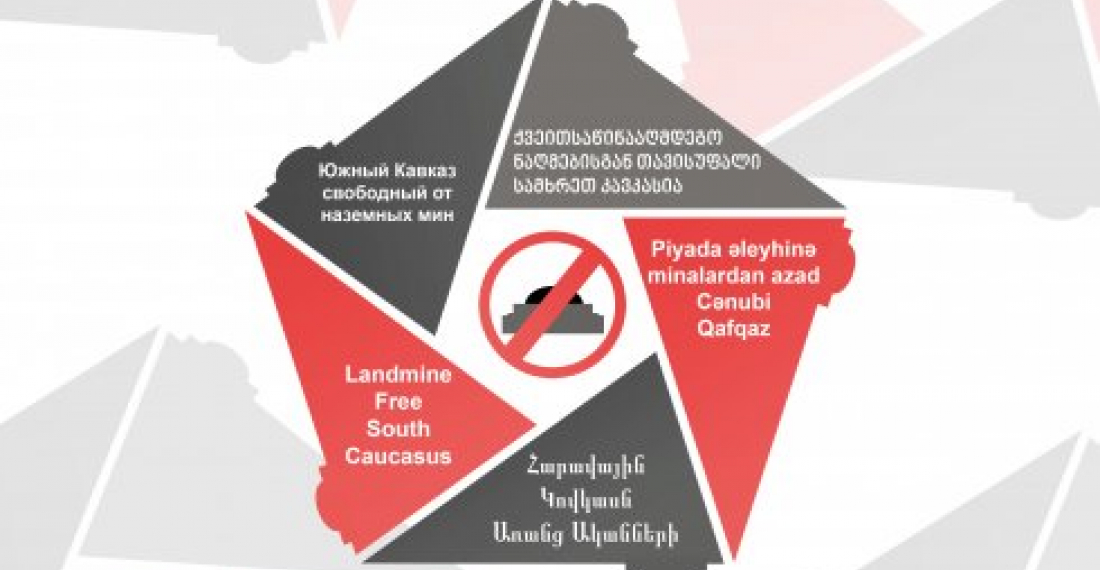This year, for the first time, International Mine Awareness day on the 4th of April is going to be marked in the South Caucasus with a region-wide awareness campaign under the slogan "Landmine free South Caucasus". The campaign which will run from 4-10 April will see events held in a number of cities and districts of the region, and will feature information material in Armenian, Azerbaijani, Georgian, Russian and English.
According to conservative estimates, more than five thousand people have been killed or injured as a result of landmines or other unexploded ordinance in non-combat situations in the South Caucasus in the last thirty years. The problem is far from being resolved despite a number of successful efforts to clear large areas, especially those close to urban centres.
Landmines kill and maim indiscriminately; most victims are innocent civilians, including children. In its 2018 report, the Geneva based organisation Landmine and Cluster Munitions Monitor reported that 87% of global casualties from landmines and unexploded ordinances are not military targets but civilians, with 47% of these being children. Where recorded in the casualty data from the South Caucasus, the majority of victims have also been civilians. The problem leaves a strong impact not only on those directly affected, but also on their families, friends and communities
In the South Caucasus landmines not only cause human suffering, they also in many circumstances impede economic development. Amongst other things, they limit the cultivation of agricultural land and restrict livestock breeding, constraining the economies.
Between 4-10 April 2019 the "LANDMINE FREE SOUTH CAUCASUS" campaign will encourage governments, opinion formers and citizens throughout the region to intensify their efforts to clean the South Caucasus from the scourge of landmines and unexploded ordinance. The campaign will take the message of the risks associated with landmines to children, young people and other vulnerable groups, especially those living in areas still infected. On the other hand, the campaign will also celebrate the good work that has been done, and is still being done, by hundreds of dedicated professionals throughout the region, who on a daily basis risk their lives to clear landmines and other unexploded ordinance in order to make the South Caucasus safe for this and future generations.
A number of national and international organisations are participating in the campaign "Landmine Free South Caucasus", an initiative supported by the European Union.
Information on the "LANDMINE FREE SOUTH CAUCASUS" campaign is available on social media under the hashtag #landminefreeSC. For further information you may contact the co-ordinating office of the "LANDMINE FREE SOUTH CAUCASUS" campaign at office@links-dar.org
You can read and download the campaign press release in Armenian here
You can read and download the campaign press release in Azerbaijani here
You can read and download the campaign press release in Georgian here
You can read and download the campaign press release in Russian here
You can read and download the campaign press release in English here







